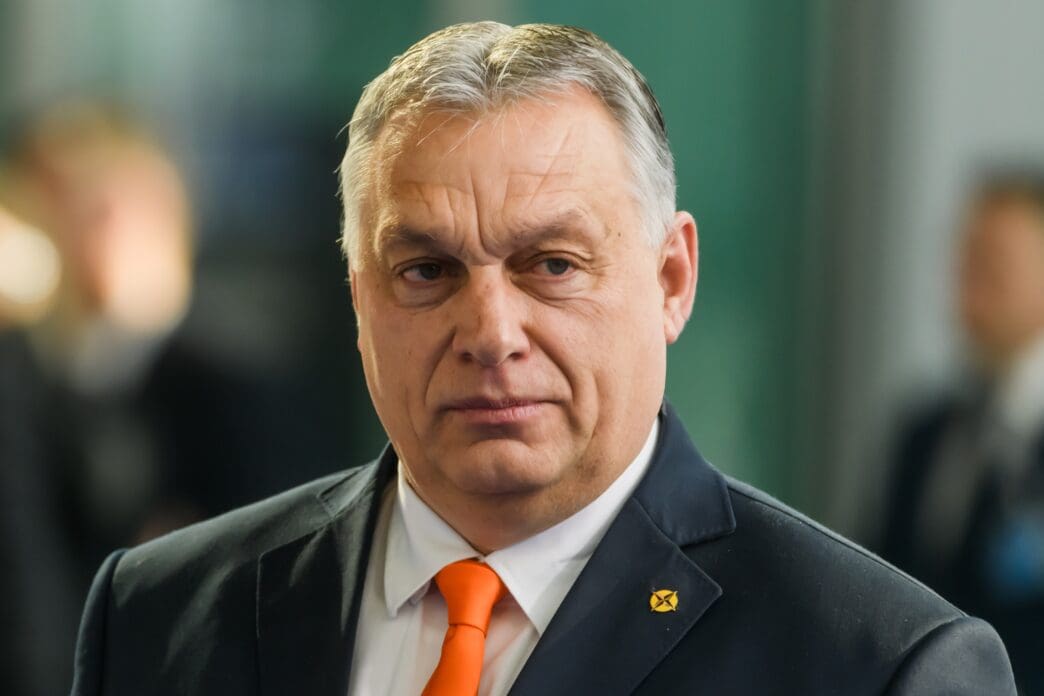Executive Summary
- Hungarian Prime Minister Viktor Orban stated that Hungary should not adopt the euro currency, citing the “disintegration” of the European Union and arguing against closer ties to the bloc.
- Orban’s rejection of the euro stands in stark contrast to his surging opposition rival, Peter Magyar, who advocates for closer EU ties and euro adoption ahead of the 2026 parliamentary elections.
- Orban’s government, a vocal critic of the EU, has faced scrutiny from Brussels, leading to the suspension of billions of euros in EU funds due to concerns over rule-of-law reforms.
The Story So Far
- Prime Minister Viktor Orban has long been a vocal critic of the European Union, consistently pursuing policies that distance Hungary from deeper integration with the bloc, leading to clashes over rule-of-law concerns and the suspension of EU funds. This long-standing stance is now sharply contrasted by a surging opposition figure, Peter Magyar, who advocates for closer EU ties and euro adoption, setting the stage for a critical ideological debate ahead of Hungary’s 2026 parliamentary elections, despite the country’s significant economic reliance on the EU.
Why This Matters
- Hungarian Prime Minister Viktor Orban’s definitive rejection of euro adoption highlights a deepening ideological rift within Hungarian politics, setting the stage for a critical debate on the nation’s future economic and political alignment with the European Union ahead of the 2026 parliamentary elections against pro-EU opposition. This stance could further impact Hungary’s access to EU funds and influence its economic trajectory, while Orban’s unusual comment on interest rates hints at potential future pressure on the central bank’s monetary policy.
Who Thinks What?
- Prime Minister Viktor Orban believes Hungary should not adopt the euro currency, citing the “disintegration” of the European Union and a desire to avoid tying Hungary’s fate more closely to the bloc.
- Opposition rival Peter Magyar advocates for closer ties with the EU, including unfreezing suspended EU funds and accelerating Hungary’s path toward euro adoption.
Hungarian Prime Minister Viktor Orban stated on Monday that Hungary should not adopt the euro currency, citing the “disintegration” of the European Union. Speaking in an interview with the economic news site EconomX, Orban argued against tying Hungary’s fate more closely to the bloc. This declaration stands in stark contrast to the platform of his surging opposition rival, Peter Magyar, who advocates for closer ties with the EU and euro adoption ahead of parliamentary elections in spring 2026.
Orban’s Stance on EU Integration
Prime Minister Orban emphasized that adopting the euro would represent the closest possible link to the European Union, a move he believes Hungary should avoid. A vocal critic of the EU since taking power in 2010, Orban’s government has faced scrutiny from Brussels, leading to the suspension of billions of euros in EU funds due to concerns over rule-of-law reforms.
Hungary currently does not meet the necessary conditions for euro adoption. Despite this, the country’s economy is heavily reliant on trade with the 27-member bloc and has utilized significant EU funds for modernization over the past two decades. Unlike Denmark, Hungary does not possess a legal opt-out from joining the currency union, though several other Eastern EU members, including Poland, the Czech Republic, and Romania, also remain outside the euro area.
Political and Economic Implications
The Prime Minister’s remarks highlight a deepening ideological divide within Hungarian politics. Peter Magyar, a prominent opposition figure, is campaigning on a platform that includes unfreezing suspended EU funds and accelerating Hungary’s path toward euro adoption. This divergence sets the stage for a critical debate on Hungary’s future economic and political alignment with the EU, particularly with parliamentary elections anticipated in 2026.
Beyond the euro debate, Orban also commented on the country’s monetary policy, stating that the central bank’s 6.5% main interest rate, which is jointly the highest in the EU, was “higher than it could be.” This marks a departure from his usual practice of avoiding direct comments on central bank policy since Mihaly Varga assumed leadership in April. The central bank paused a year-long easing cycle in September, a move that has helped strengthen the forint to a 15-month high against the euro and aimed to curb the flow of domestic savings into foreign currencies.
Outlook
Prime Minister Orban’s definitive rejection of euro adoption underscores his government’s continued skepticism towards deeper EU integration, despite Hungary’s significant economic ties to the bloc. This position will likely remain a central point of contention in domestic politics, particularly as opposition forces advocate for a more pro-EU economic path.








